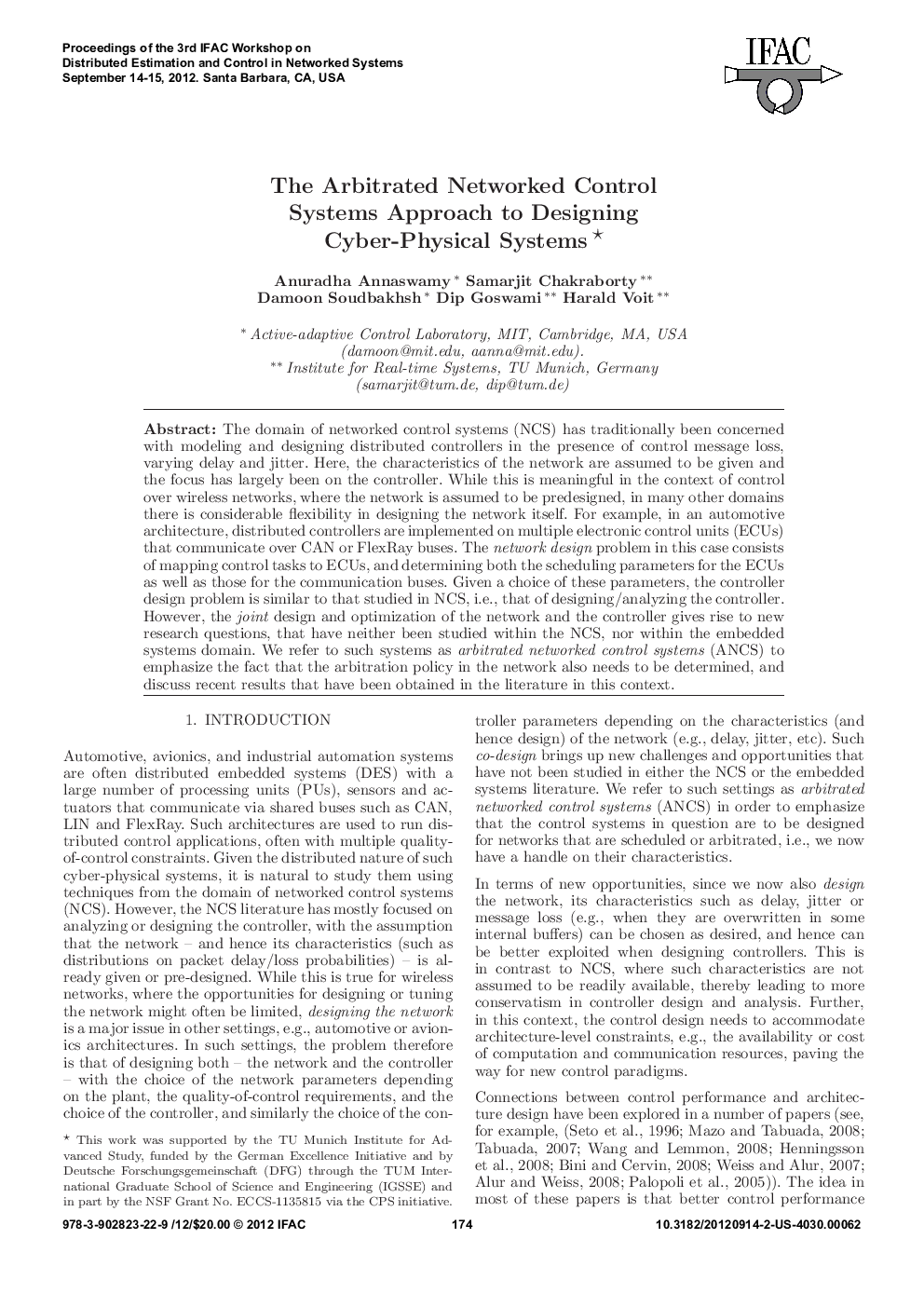| Article ID | Journal | Published Year | Pages | File Type |
|---|---|---|---|---|
| 717333 | IFAC Proceedings Volumes | 2012 | 6 Pages |
The domain of networked control systems (NCS) has traditionally been concerned with modeling and designing distributed controllers in the presence of control message loss, varying delay and jitter. Here, the characteristics of the network are assumed to be given and the focus has largely been on the controller. While this is meaningful in the context of control over wireless networks, where the network is assumed to be predesigned, in many other domains there is considerable flexibility in designing the network itself. For example, in an automotive architecture, distributed controllers are implemented on multiple electronic control units (ECUs) that communicate over CAN or FlexRay buses. The network design problem in this case consists of mapping control tasks to ECUs, and determining both the scheduling parameters for the ECUs as well as those for the communication buses. Given a choice of these parameters, the controller design problem is similar to that studied in NCS, i.e., that of designing/analyzing the controller. However, the joint design and optimization of the network and the controller gives rise to new research questions, that have neither been studied within the NCS, nor within the embedded systems domain. We refer to such systems as arbitrated networked control systems (ANCS) to emphasize the fact that the arbitration policy in the network also needs to be determined, and discuss recent results that have been obtained in the literature in this context.
